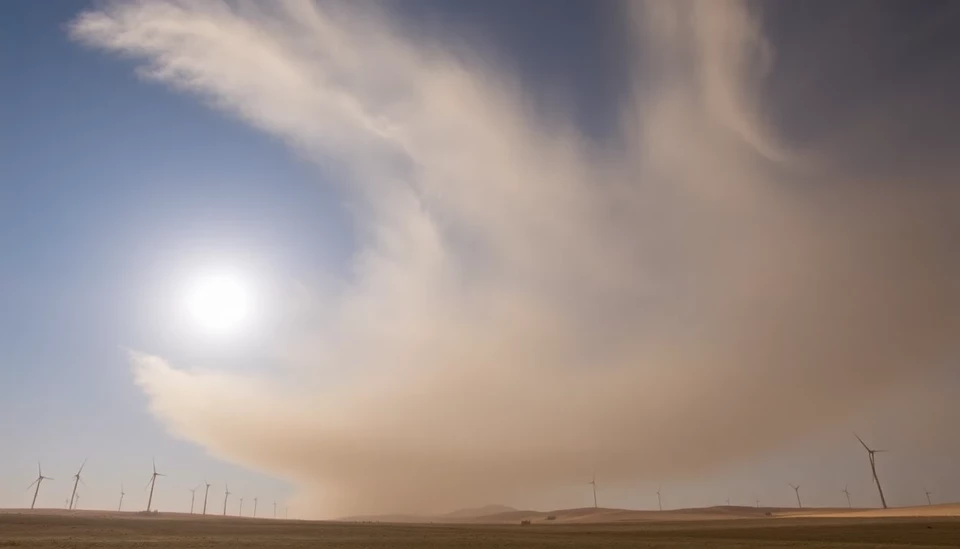
In a striking development, meteorological experts have reported that a wave of Saharan dust is expected to sweep into Europe, notably impacting solar energy output across Germany. This phenomenon, usually termed "dust events," may significantly reduce the efficiency of solar panels by coating their surfaces with fine particles. Solar energy production is crucial for Germany's renewable energy strategy, and this dust intrusion raises concerns about potential setbacks in meeting the nation's climate goals.
As the dust travels from North Africa to Europe, it not only hampers solar output but can also affect air quality across the continent. The dust particles absorb and scatter sunlight, which in turn lowers the solar irradiance reaching photovoltaic systems. Reports indicate that the current situation may lead to a decrease in solar energy production by as much as 50% in some areas affected by the dust storm.
Germany has made significant investments in solar energy infrastructure over the past decade. The country, a leader in renewable energy deployment, has increased its solar capacity dramatically, with thousands of solar farms installed across the landscape. However, this environmental challenge poses immediate risks to these installations and could disrupt the steady growth of renewable energy contributions to the national grid.
Experts are particularly concerned about the timing of this dust influx. With ongoing efforts to shift towards greener energy sources and decrease reliance on fossil fuels, any short-term disruption could slow down progress toward energy independence and climate objectives. Policymakers and solar energy operators will need to monitor this situation closely and develop strategies to mitigate the impact of such environmental occurrences in the future.
Furthermore, as Saharan dust plumes are becoming increasingly frequent due to climate change, the energy sector might need to adapt by improving the resilience of solar technologies. Investing in cleaning and maintenance technologies can also become a necessary preventive measure to ensure optimal solar output even in the face of such challenges.
As Germany braces for this impending dust event, energy analysts urge a balanced approach that includes both continued investment in renewable technologies and adaptation strategies to mitigate the effects of unpredictable environmental factors. It’s a crucial moment that tests not only the capabilities of solar technologies but also the resolve of national energy policies aiming for sustainability in a changing climate.
The upcoming days will be telling as Germany's solar farms, which play an integral role in powering homes and businesses, grapple with the aftermath and potential downturns in energy production. Stakeholders in the solar industry and government will need to respond swiftly to ensure that Germany can maintain its commitment to reducing greenhouse gas emissions while navigating the complexities of an evolving climate landscape.
In conclusion, as the Saharan dust descends upon Germany, the implications stretch beyond immediate solar output reductions; they resonate within the broader dialogue on energy strategy and climate resilience.
#SaharanDust #SolarEnergy #Germany #RenewableEnergy #ClimateChange #EnergyProduction
Author: Victoria Adams




